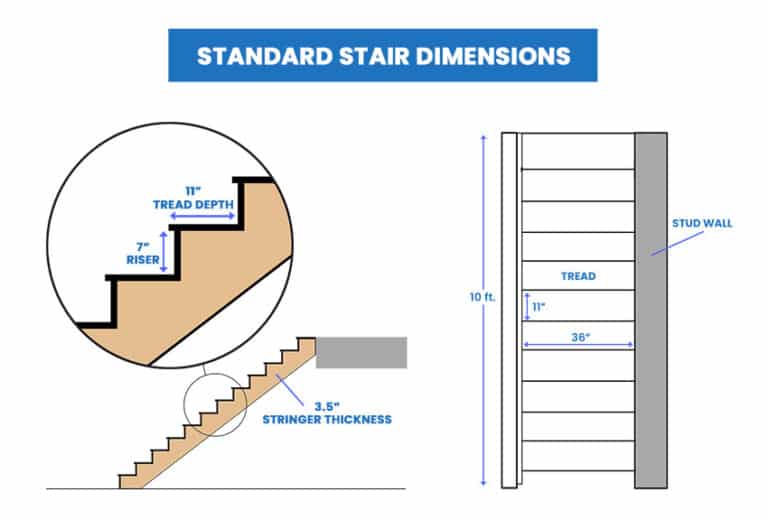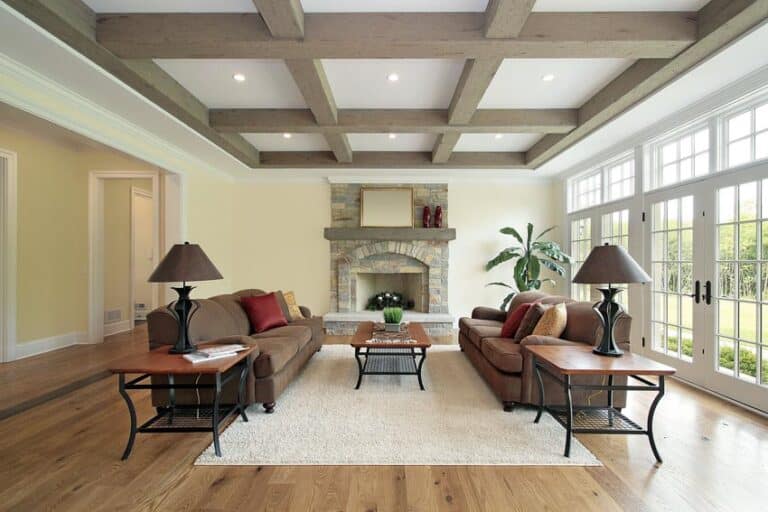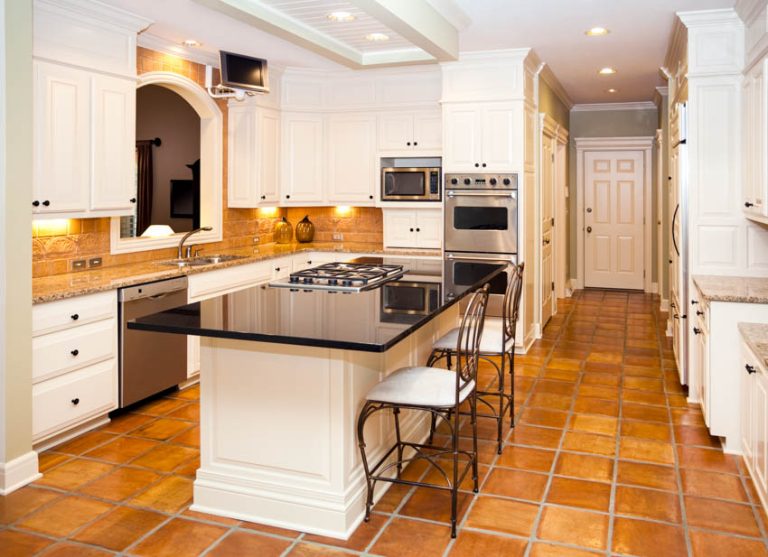Painted Banister (Paint to Use & Design Ideas)
Below we share our painted banister guide including some ideas on what paint you should use and how to paint your stair banister properly without sanding or leaving them any brush marks.
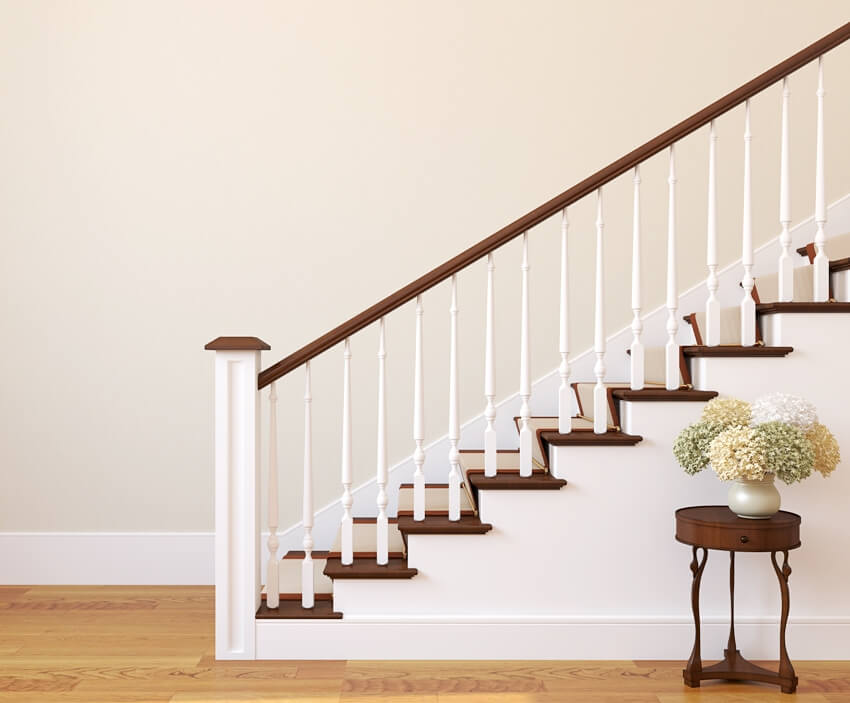
However, just like any other renovation, you’ll want to make sure you know everything about this renovation before you commit. Keep reading to learn the essential concepts about painting your banister.
What Paint To Use On Stair Banister
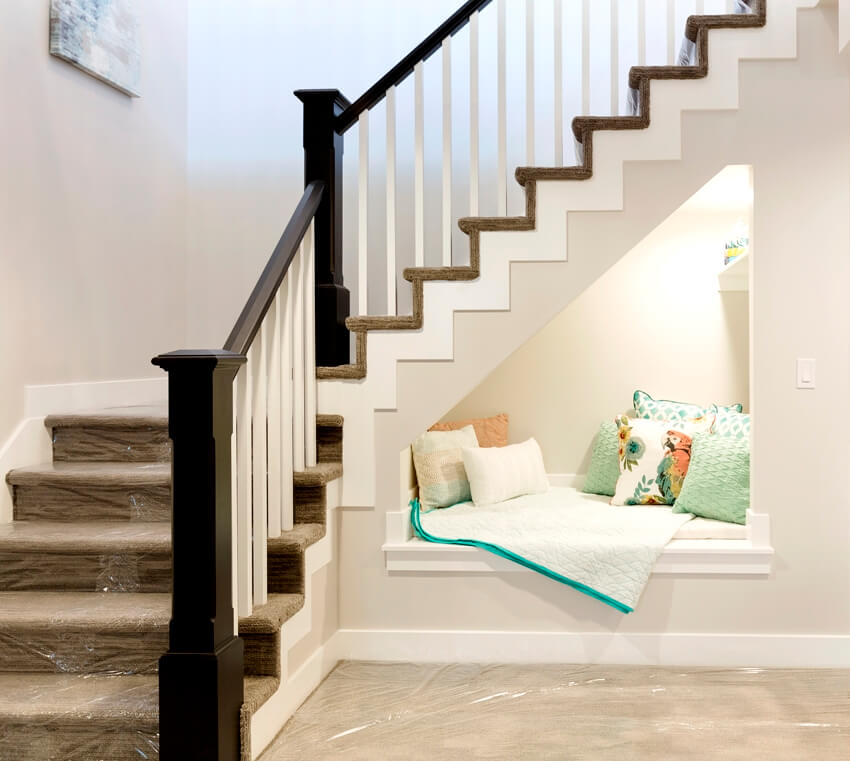
The biggest factor here is that your banister is a high-traffic area. To put it another way, it’s an area that people touch often. As such, you won’t want to use a matte or flat-finish paint since these tend to show mess faster while being harder to clean.
On the contrary, you’ll want to use, ideally, a type of hard enamel paint with either a semi-gloss or satin finish. This way, it won’t show faults quite as quickly.
Painted Banister Ideas
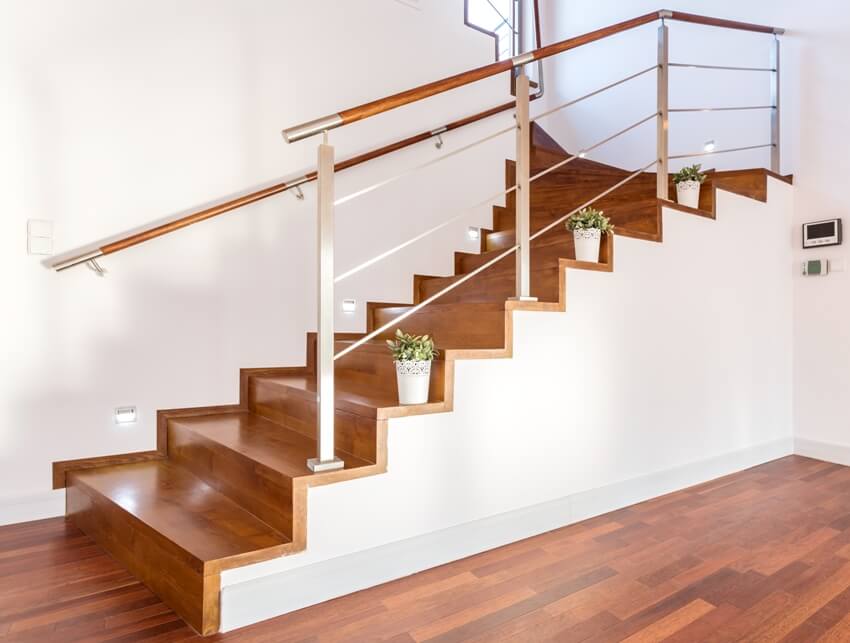
One of the most popular choices is to paint your banister from balusters to spindles all the same color. This is usually done in a neutral tone like black, white, or gray.
While it’s most often seen when banisters are left to their natural wood grain or stained rather than painted, a similar look can be achieved with the paint of your choice.
Another option is to leave the spindles of your banister white and leave the bolder colors to the railing. Using a dark color like black or gray can help create a dramatic or modern look to your stairs.
On the other hand, a lighter color like baby blue can complement a rustic decor scheme very well. Check out our guide to the best staircase wall painting ideas here.
How To Paint A Banister
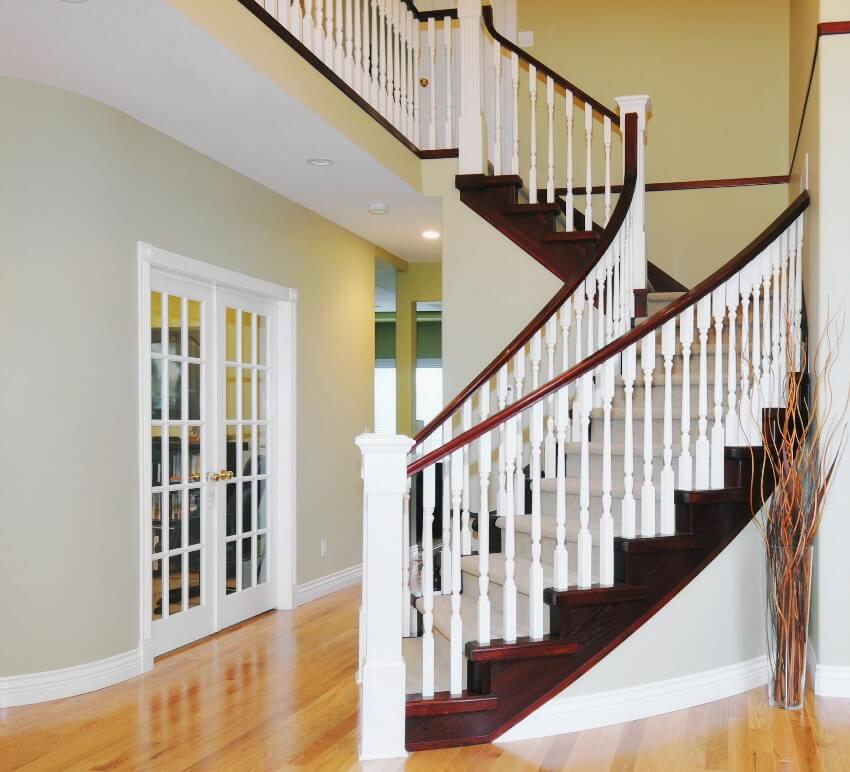
First, remember to use the paint we talked about earlier to ensure that you get the results you’re hoping for.
To start the process, you’ll want to sand and clean the banister that you’re painting. This will ready it for the paint by de-glossing the finish that’s on it now.
Before moving on, make sure to clean the area with a damp cloth to ensure that you don’t end up painting down dust from when you sanded.
Next, apply primer to the banister to ready it for the actual paint. Once that’s done, you can start painting.
When you paint underneath the handrail and the connection between the balusters and the base rail, an artist’s brush will come in handy for these tight spots. To finish off, add a protective topcoat.
If you’re nervous about your painting technique, take it slow. Start on the parts of your banister that are less visible. This way, as you move to the sections of your banister that people will notice, you’ve gotten the hang of the technique!
Materials needed to paint a Bannister:
- Blue painter’s tape
- Drop-cloths
- Degreaser
- Hard enamel paint with a semi-gloss or satin finish
- Respirator for paint and sanding
- Palm sander sander (Use for flatter areas)
- Sanding pads
– 100 grit sandpaper for 1st sanding
– 220 grit sandpaper for 2nd sanding - Sanding blocks with angled edges
- Tack cloth
- Lint free rags
- fine furniture paintbrush
- Primer (If you choose a paint that requires it)
Can You Paint Over A Stair Banister?
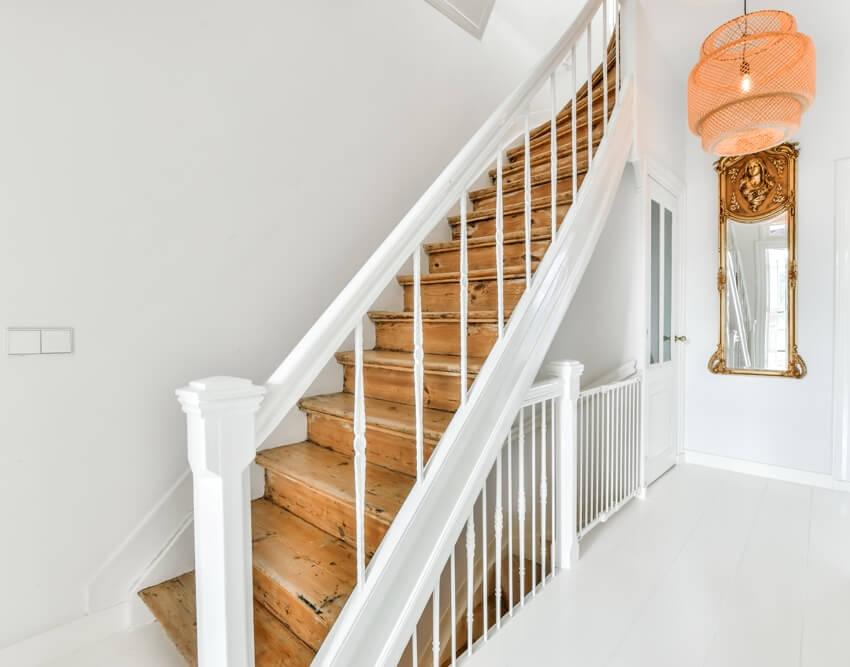
As we said before, you’ll want to take a measure like sanding to remove the glossed finish from the banister before getting started.
Make sure it’s clean first as well. Then, you’ll be ready to paint your banister as if it hadn’t been painted before, allowing you to revamp it to suit your tastes!
Can You Paint A Banister Without Sanding?
While sanding can really help when you paint your banister, it can also create extra work and quite the mess. So, is there any way to get around it? Can you paint a banister without sanding it first? Actually, yes!
However, that doesn’t mean you can just paint directly on your banister as-is. As we said before, the purpose of sanding is to help remove the gloss from the previous finish on the banister. In other words, you’ll still need to remove this gloss in some way.
The best answer is to use a liquid sander or deglosser. This is made to help remove the glossy finish from your banister without going so far as to strip the wood.
A deglosser won’t leave you with a damp or greasy texture on the banister either, making it easy to paint over when you’re ready. Read more about how to stain stair railing without sanding here.
How To Paint Stair Spindles Without Brush Marks
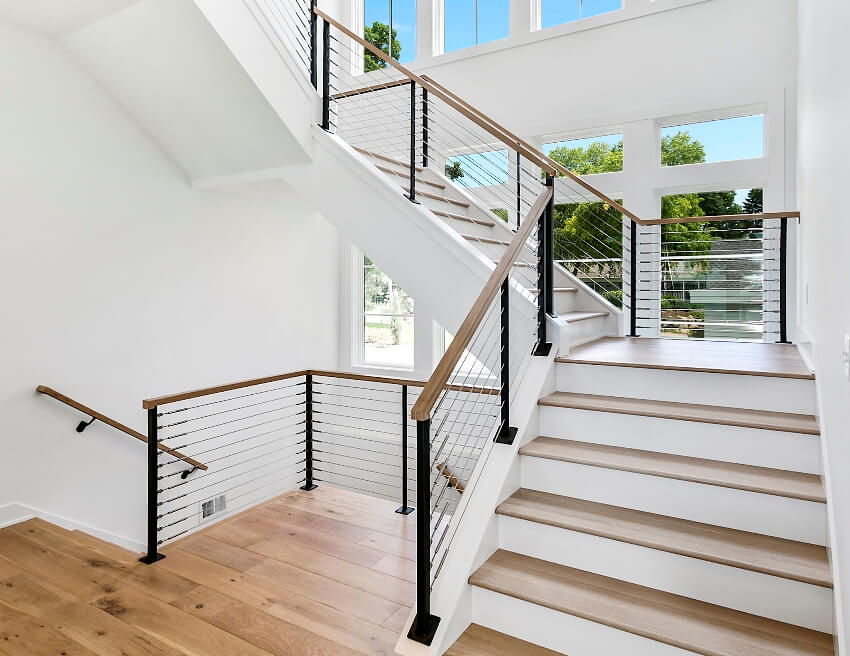
Of course, you’ll want to start the same way you do the rest of the banister – make sure that the spindles are well-sanded and cleaned. You’ll also want to repair any damage you see for the best results.
One option is to skip a paintbrush altogether. After all, how can you have brush marks if you don’t use a brush in the first place? See our comparison of paint sprayer vs roller here.
Using a paint sprayer can save a lot of time as well as reduce paint brush marks. If you do this, just make sure that you use all the proper protections and cover the surrounding area to avoid overspray when you paint.
Another alternative is to use a roller. This method might take a little longer and you may have to touch up the nooks and crannies of the spindles with a small paintbrush but it will reduce the rate of brush marks. On top of that, you won’t have to worry about issues like overspray.
For more related ideas visit our guide to different types of staircases.

